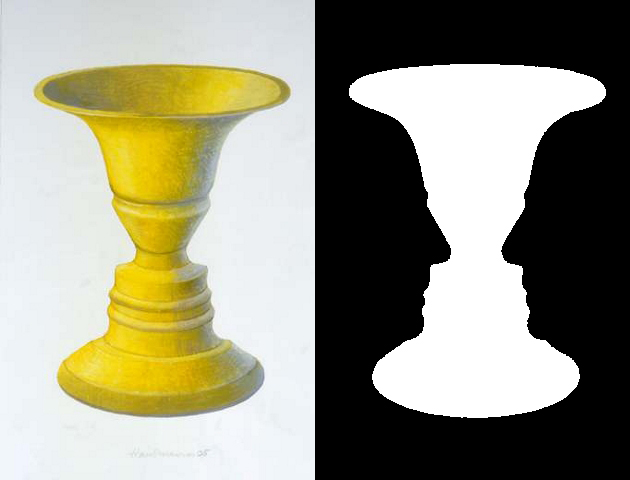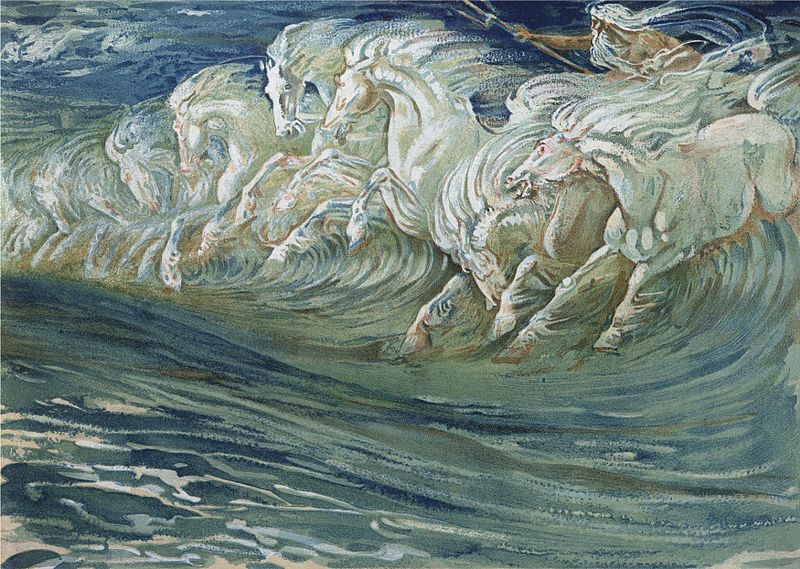Art History References: Geometric Essence
Art History References: Geometric Essence

Rubin’s vase (sometimes known as the Rubin face or the figure–ground vase) is a famous set of ambiguous or bi-stable (i.e., reversing) two-dimensional forms developed around 1915 by the Danishpsychologist Edgar Rubin. The visual effect generally presents the viewer with two shape interpretations, each of which is consistent with the retinal image, but only one of which can be maintained at a given moment. This is because the bounding contour will be seen as belonging to the figure shape, which appears interposed against a formless background. If the latter region is interpreted instead as the figure, then the same bounding contour will be seen as belonging to it. – Wikipedia

Walter Crane was a British artist and book illustrator. He is considered to be the most influential, and among the most prolific, children’s book creators of his generation.
Born: August 15, 1845, Liverpool, United Kingdom
Died: March 14, 1915, Horsham, United Kingdom
Period: Art Nouveau
Known for: Children’s literature
